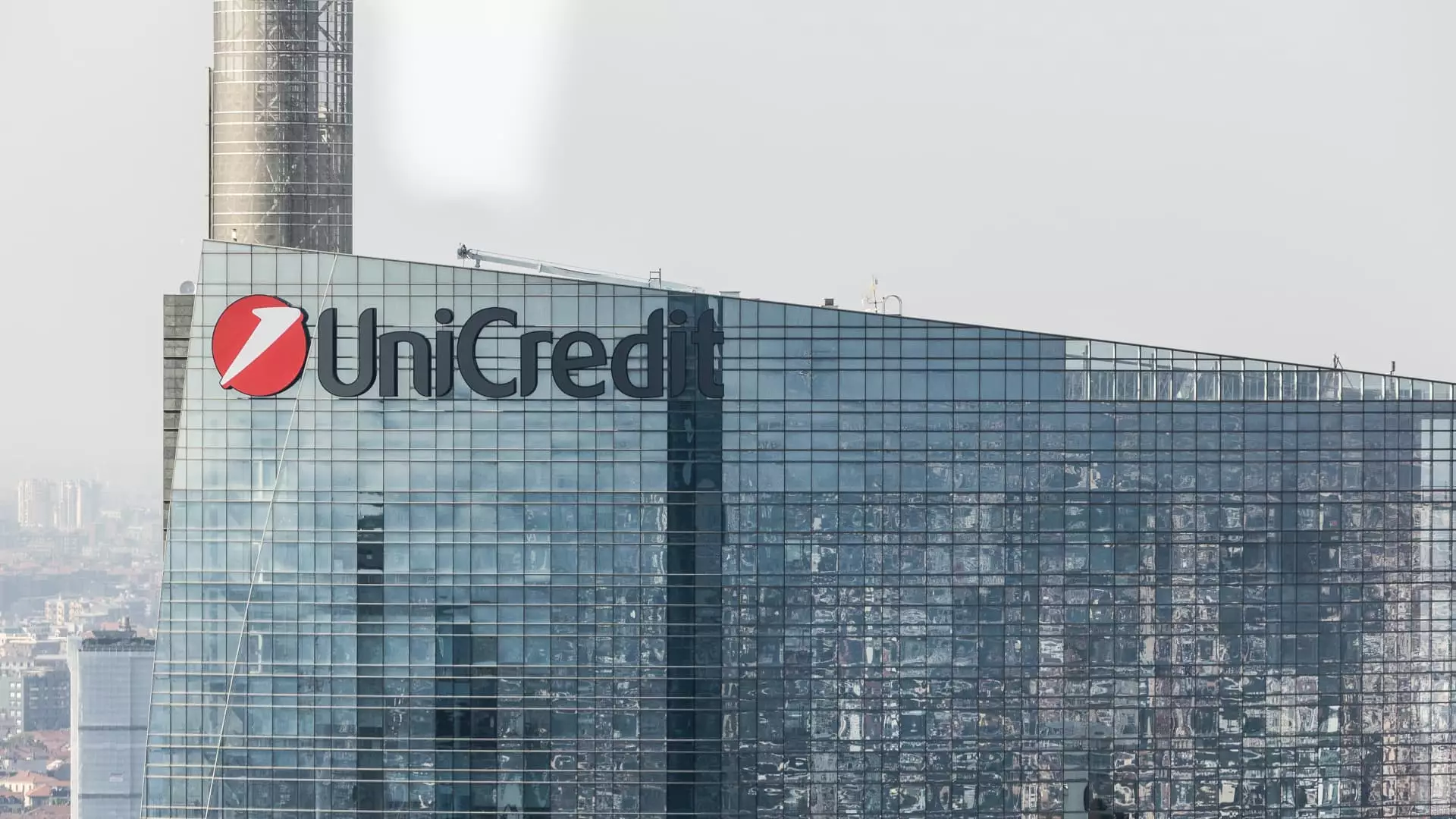In a significant development on Wednesday, Italy’s UniCredit announced that it has augmented its stake in Germany’s Commerzbank to 28% through the use of additional derivatives. This strategic move escalates its previous holding of 21%, reflecting a growing interest in enhancing its presence within the German banking landscape. According to the latest reports, UniCredit now holds a 9.5% direct stake alongside approximately 18.5% acquired via derivative instruments. This bold action underscores UniCredit’s aspiration to solidify its foothold in a crucial European market, further bolstered by its ongoing efforts to pursue a bid for Italian rival Banco BPM.
With an application submitted to the European Central Bank (ECB) requesting authorization to elevate its stake in Commerzbank up to 29.9%, UniCredit’s CEO Andrea Orcel is maneuvering to challenge the competitive landscape not just in Italy but also in Germany. Orcel articulates a vision that emphasizes the potential value lying dormant within Commerzbank and the necessity of realizing this value in light of Germany’s robust economy. The implications of UniCredit’s maneuvering are profound; the move is seen as an endorsement of Germany’s potential in the banking sector while simultaneously positioning UniCredit as a formidable player in European finance.
Despite the substantial increase in its stake, UniCredit maintains that its position in Commerzbank is presently “solely an investment.” This declaration suggests that there are no immediate plans for a full takeover, which could unsettle ongoing negotiations regarding Banco BPM. Analysts speculate that there might still be room for UniCredit to enhance its bid for Banco BPM, perhaps by introducing a cash component to the offer in order to facilitate domestic consolidation. Such strategic interactions underscore the dynamic nature of the financial sector as institutions seek to bolster their competitive positions amid economic uncertainties.
Commerzbank’s response to UniCredit’s announcement was notably cautious, acknowledging the development without delving into specifics beyond its current strategic initiatives, which are set to be unveiled on February 13. The German government remains a pivotal player in this narrative; it holds a 12% stake in Commerzbank, having divested a portion of its holdings in a bid to step away from the lender it rescued during the 2008 financial crisis. Furthermore, the political climate in Germany, characterized by instability following the recent governmental upheavals, might complicate the scenario for any prospective foreign investments into local banks.
The market has responded with optimism to UniCredit’s ambitious strategies, witnessing a 1.1% increase in its shares while Commerzbank’s stock rose by 3.1%. These upticks signal investor confidence in UniCredit’s strategic direction and the potential benefits of a merger or acquisition that could generate considerable synergies across various banking operations in both Germany and Italy. It is evident that as the financial landscape evolves, the interactions between these two major banks will continue to be worth watching for their wider implications on European banking relations and economic performance.
UniCredit’s recent actions indicate a calculated positioning aimed at leveraging growth opportunities in both the German and Italian markets, setting the stage for an exciting chapter in European banking history.

Leave a Reply